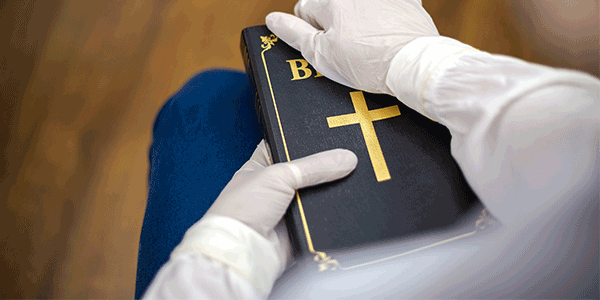Tuesday the Office for Civil Rights (OCR) at the U.S Department of Health and Human Services (HHS) announced the resolution of a religious discrimination complaint against Prince George’s Hospital Center of the University of Maryland Medical System (UMMS) after UMMS adopted new policies ensuring clergy access to patients for religious purposes during the COVID-19 pandemic.
In June 2020, OCR’s Conscience and Religious Freedom Division received a complaint from Susanna Marcus, alleging she had requested a visit from a priest for her critically injured husband, Sidney Marcus, which was denied by Prince George’s Hospital Center.
The Marcuses had been in a major car accident in May that sent Sydney to the intensive care unit at Prince George’s Hospital Center with serious injuries. As his health declined, Susanna’s request to have a local priest visit her husband was denied based on the hospital’s visitor exclusion policy that it had adopted in response to the COVID-19 pandemic.
Acting in partnership with the Centers for Medicare & Medicaid Services (CMS), OCR provided technical assistance to UMMS, referring to the CMS guidance – PDF concerning hospital visitations during the COVID-19 pandemic. The guidance provides that “facilities must ensure patients have adequate and lawful access to chaplains or clergy.”
Now, Mr. Marcus, and all UMMS patients at its 13 hospitals, can freely exercise their religion with clergy visitations in compassionate care situations including end-of-life. This pertains to patients in COVID-19 positive units or sections, as well as patients in non-COVID units who may freely exercise their religion by receiving clergy visitation at any reasonable time, as long as the visit does not disrupt clinical care. Visiting clergy must follow hospital safety policies, including screening for COVID-19 infection, such as temperature checks, and must be willing to sign a written waiver.
UMMS also modified their policies to allow for a robust protection of people with disabilities who need support persons as they receive care.
HHS Secretary Alex Azar said, “As our work with the University of Maryland Medical System shows, we can deliver healthcare, combat COVID-19, and protect religious freedom all at the same time.”
Roger Severino, Director of OCR, said, “We applaud the University of Maryland Medical System for working to save lives while respecting what people live for, which for many includes the exercise of their faith.” Severino added, “Too many people have died alone during this crisis, but this resolution shows that hospitals can practice compassion and safety without sacrificing either.”
Make sure you stay up-to-date with updated OCR policies and contact us if you ever have any questions or concerns about how those may affect you and your organization.
PrivaPlan is here to help. Contact us at 1-877-218-7707 or info@privaplan.com.





